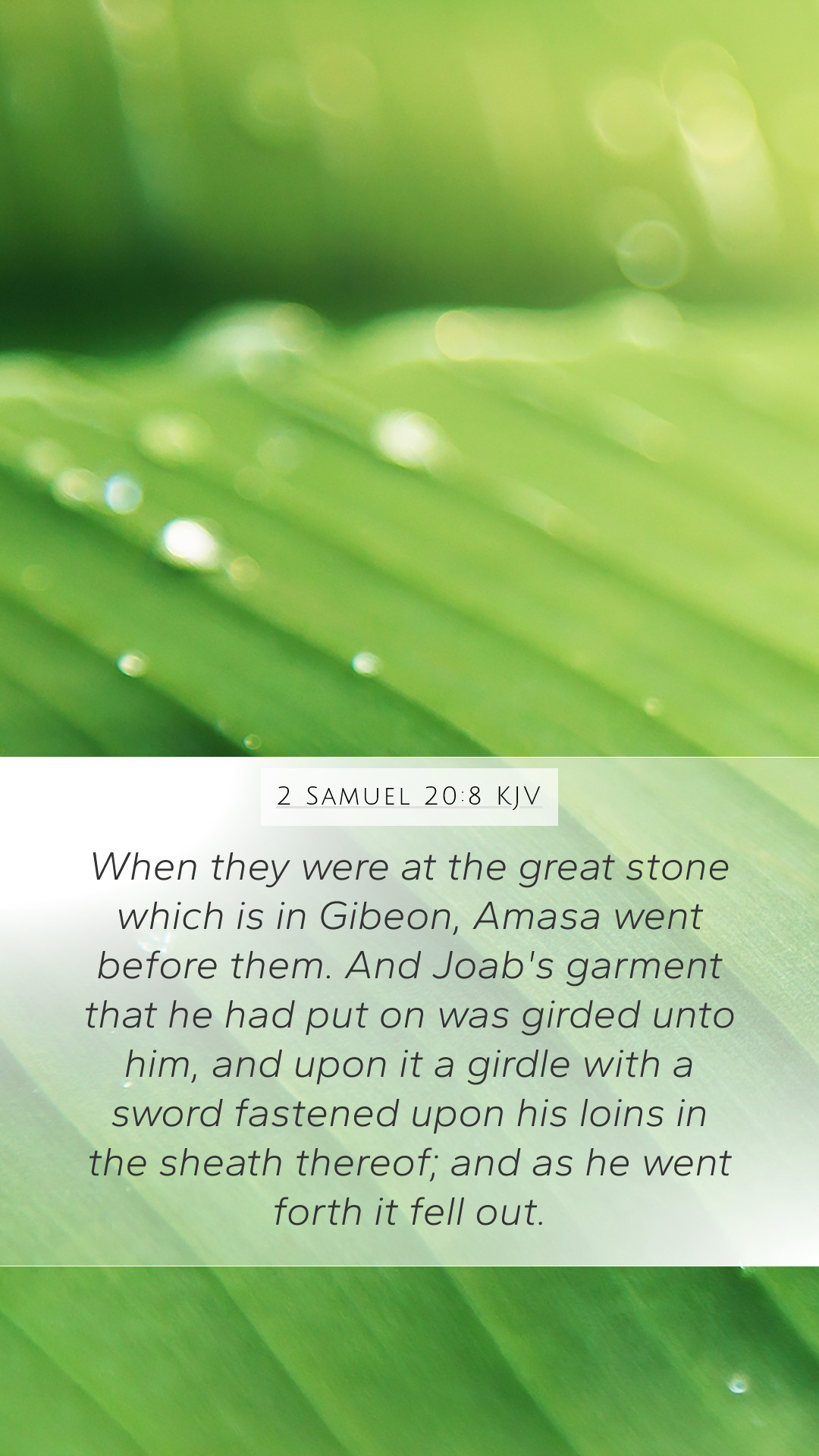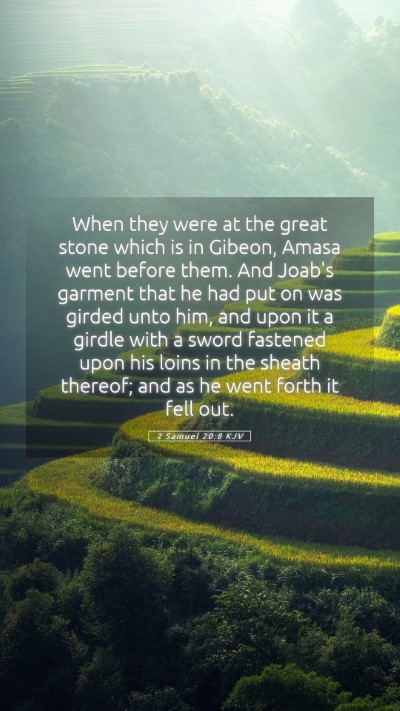Understanding 2 Samuel 20:8 - A Comprehensive Commentary
Bible Verse: 2 Samuel 20:8
In this verse, we witness a critical moment in the narrative of King David's reign, particularly during a time of political upheaval. This passage provides an opportunity for in-depth exploration and analysis of its meaning and implications, addressing topics relevant to biblical studies and interpretations.
Contextual Background
2 Samuel 20 describes the rebellion of Sheba, a Benjamite, against King David. The context is essential as it highlights David's struggle to maintain unity in Israel during a tumultuous period following the civil war ignited by Absalom's revolt.
Detailed Analysis
Commentaries by Matthew Henry, Albert Barnes, and Adam Clarke provide valuable insights into the significance of this verse. Here are some key takeaways:
-
Matthew Henry's Commentary:
Henry emphasizes the fearless determination exhibited by David's men during the pursuit of Sheba, interpreting their actions as indicative of loyalty and allegiance to the king. He notes the importance of swift action in dealing with rebellion, suggesting that it reflects a leader's resolve to uphold order and justice.
-
Albert Barnes' Notes:
Barnes elaborates on the tactical aspect of David's military strategy, indicating that the way he manages his forces illustrates a deeper understanding of leadership. He draws parallels to the necessity of decisive leadership in both ancient and modern contexts, emphasizing the relevance of this passage for contemporary readers seeking to comprehend the implications of authority.
-
Adam Clarke's Commentary:
Clarke focuses on the narrative's momentum, interpreting the swift advancement towards the city of Abel as a metaphor for the urgency required in correcting wrongs. He highlights that this moment sheds light on the consequences of rebellion and the need for community cohesion to prevent division.
Theological Significance
This verse carries significant theological implications regarding the nature of kingship and governance. It prompts readers to reflect on the proper exercise of authority and the responsibility of leaders to protect their people from internal strife.
Application in Daily Life
As we apply the lessons from 2 Samuel 20:8, it becomes apparent that the issues of loyalty, leadership, and communal unity are prominent in our lives. It encourages individuals to evaluate their own roles in their communities, workplaces, and families.
Cross References
- 2 Samuel 15:10 - The narrative surrounding Absalom's rebellion.
- 1 Kings 2:5-6 - David's instructions regarding Joab's fate.
- Proverbs 20:28 - The importance of loyalty and faithfulness in leadership.
Conclusion
In summary, 2 Samuel 20:8 serves as a poignant reminder of the complexities involved in leadership and the critical importance of addressing dissent and disunity. The insights from esteemed biblical commentators provide a valuable framework for Bible verse understanding and enlightening discussions in Bible study groups and online Bible study settings.
Further Study
For those interested in delving deeper into this scripture and others, consider using Bible study tools and resources available in Bible study guides, focusing on in-depth Bible verse analysis and historical context.
Understanding challenging passages like this one enriches our study of the Bible and allows us to engage more deeply with the text, leading to greater insights into the nature of God, leadership, and community.


